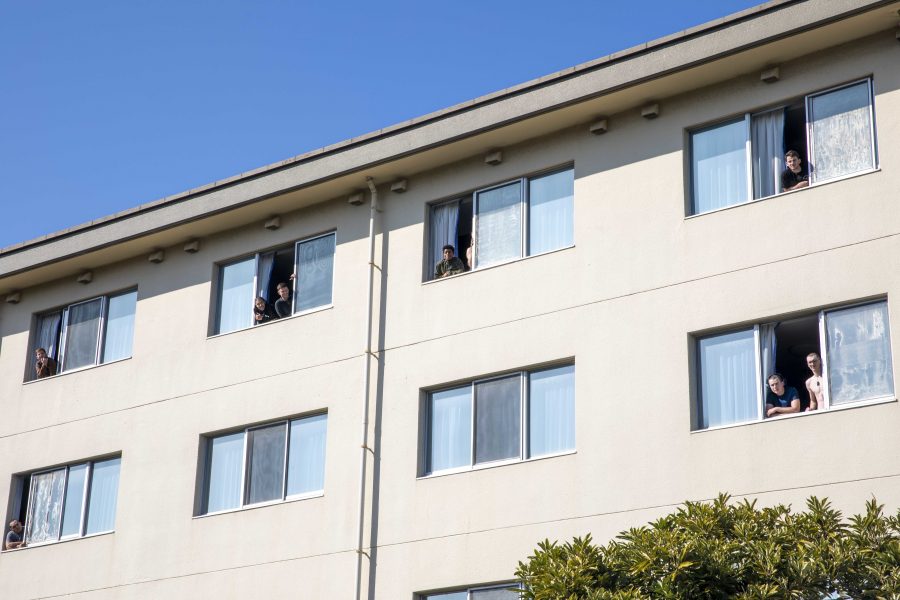The Defense Department told commanders to use their own judgment and act liberally in supporting remote telework and granting leave during the coronavirus pandemic.
“Commanders have broad authority to exercise sound judgment in all cases, and this guidance describes available authority and flexibility that can be applied to promote, rather than to restrict, possible solutions,” according to a March 26 guidance memo from Acting Assistant Secretary of Defense for Manpower and Readiness Virginia Penrod.
It urges commanders to institute telework wherever possible. It also allows commanders to assign alternative places of duty to service members who might pose a risk to others, such as those who had been in countries or regions designated “Travel Health Notice Level 3” locations or who had come in contact with someone who has tested positive for COVID-19. Also covered are Airmen who tested positive for the virus or have one or more family members who have tested positive and are relying on the service member to help take care of them.
Alternative duty stations could include the service member’s home, a government-funded lodging facility, or a hotel not associated with the military.
In most cases, pay and benefits will be unaffected by COVID-19. But there are exceptions. The Pentagon has created a new pay category, “Hardship Duty Pay–Restriction of Movement” (HDP-ROM) aimed at ensuring service members are still compensated if they are ordered to self-monitor due to the COVID-19 virus.
HDP-ROM only applies if a commander orders a service member to self-isolate away from their home or a government-funded facility while assigned to their regular duty station. It is a taxable payment of $100 per day, up to $1,500 a month. Service members are responsible for any balance greater than $100 per day, but do not have to repay the difference if lodging found is less expensive.
For example, a service member returning home from a deployment to an affected region could be ordered to self-monitor for two weeks. If that member had dependents not affected by COVID-19, the commander could assign an alternative duty station, sending the member to government lodging or a hotel for the self-quarantine period.
Commanders also are encouraged to grant leave “liberally” to service members if they or a family member is affected by COVID-19. “Members who exhaust their annual leave may be granted advance leave, with pay and allowances,” the guidance states.
The Air Force Reserve will also grant commanders “broad discretion and flexibility” to reschedule annual training or inactive duty training, and “provide as much advance notice as possible” for potential makeup dates. Commanders also can direct service members to conduct training electronically in lieu of drilling in person, and exceptions can be made for members unable to make use of digital distributed learning systems.
For additional information, see the Military Personnel, Pay and Benefits Fact Sheet.
